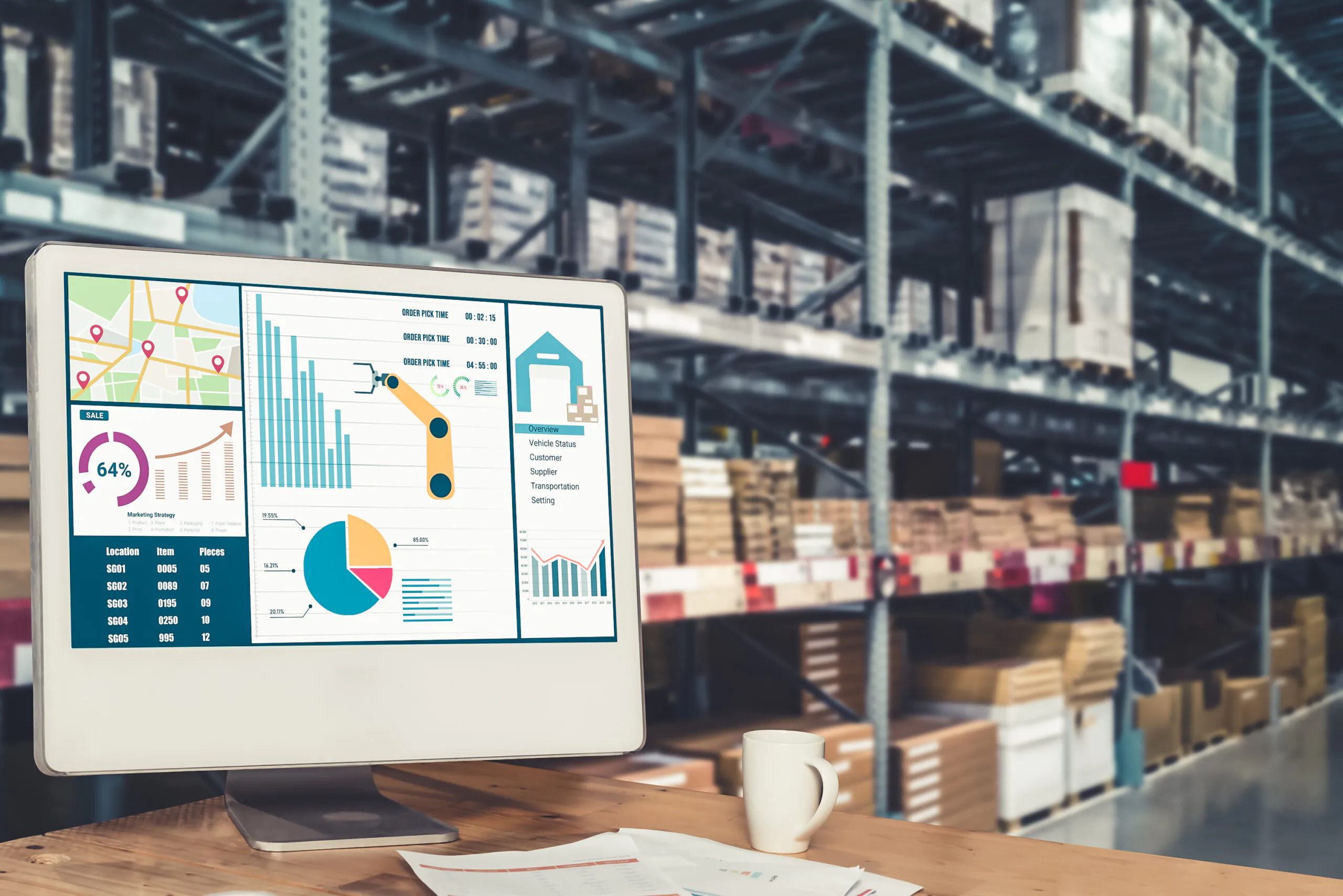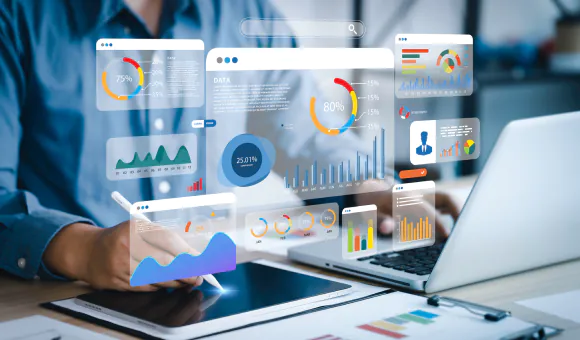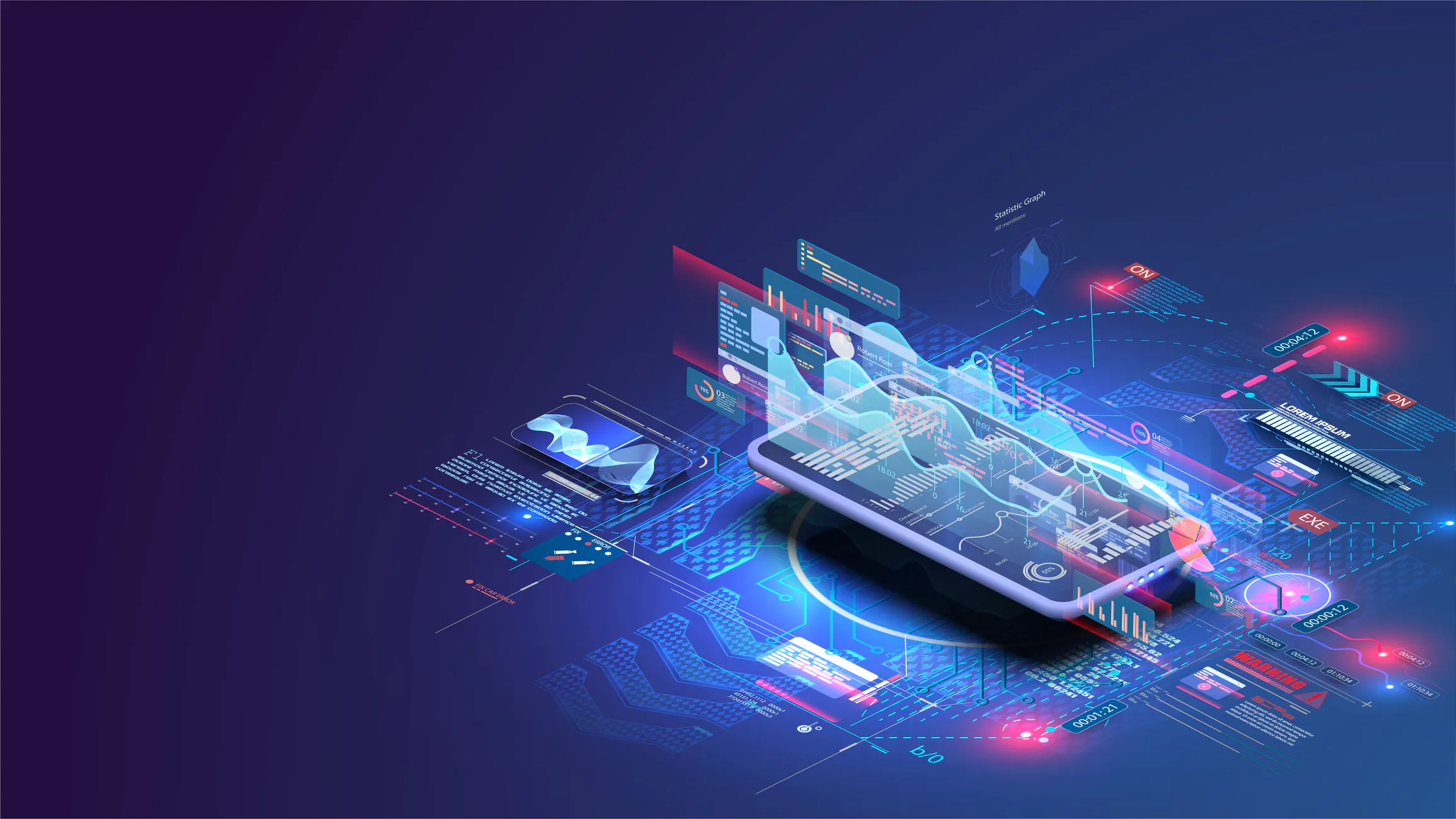The rise of digital twin analytics is reshaping industries by merging physical and virtual worlds to enhance predictive maintenance and operational efficiency. This powerful approach leverages real-time data, simulation, and analytics to provide actionable insights, driving smarter decision-making.
In this blog, we’ll explore the fundamentals of digital twin technology, its data-driven applications, and how it is transforming industries with advanced analytics.
Book a demo to experience the meaningful insights we derive from data through our analytical tools and platform capabilities. Schedule a demo today!
Request a Free DemoTable of Contents
What is Digital Twin Analytics?
A digital twin is a virtual representation of a physical object, system, or process, continuously updated with real-time data through IoT and advanced sensors. Digital twin analytics uses this real-time data to perform simulations, predictions, and optimizations.
Key Components of Digital Twin Analytics:
| Component | Description |
|---|---|
| Digital Twin Modeling | Creation of the virtual representation of assets or systems. |
| Data Integration | Combining IoT, cloud, and edge data streams into the digital twin. |
| Data Visualization | Presenting complex data through interactive dashboards and visual models. |
| Predictive Analytics | Using machine learning (ML) and AI to forecast potential failures and trends. |
| Simulation Analytics | Testing scenarios in a risk-free virtual environment. |
How Digital Twin Analytics Transforms Predictive Maintenance
Predictive maintenance ensures the longevity and reliability of machinery by anticipating failures before they occur. Here’s how digital twin technology enhances this process:
1. IoT and Digital Twin Analytics
Digital twins pull real-time data from IoT devices, offering continuous monitoring of equipment performance.
2. Machine Learning in Digital Twin Analytics
With ML algorithms, digital twin performance analytics can identify anomalies and predict failure points with high accuracy.
3. Digital Twin Simulation Analytics
By simulating different operating conditions, businesses can determine the best maintenance schedules and operational strategies.
4. Digital Twin Insights and Analytics
Smart analytics provide actionable insights for maintenance teams, reducing downtime and costs.
| Traditional Maintenance | Digital Twin Predictive Maintenance |
|---|---|
| Reactive approach (fix after failure) | Proactive approach (prevent failure) |
| Periodic, fixed schedules | Real-time, condition-based schedules |
| Higher downtime and costs | Lower downtime and optimized costs |
Enhancing Operational Efficiency with Digital Twin Data Analytics
Operational efficiency involves optimizing processes, reducing waste, and improving productivity. Digital twin analytics aids this by:
1. Data-Driven Digital Twin
Using big data and digital twin models, industries gain a comprehensive view of operations, identifying bottlenecks and inefficiencies.
2. Real-Time Digital Twin Analytics
Real-time insights ensure rapid responses to changing conditions, enhancing agility.
3. Cloud-Based Digital Twin Analytics
Cloud platforms provide scalability and enable seamless data sharing across teams and locations.
4. Edge Computing and Digital Twin Data
By processing data locally, edge computing accelerates decision-making, especially for time-sensitive operations.
Applications of Digital Twin Technology Analytics
Digital twin analytics is revolutionizing diverse sectors. Here are key applications:
| Industry | Use Case | Benefits |
|---|---|---|
| Manufacturing | Predictive maintenance, production optimization | Reduced downtime, higher output |
| Healthcare | Virtual modeling of organs, personalized treatment plans | Enhanced diagnosis, better outcomes |
| Energy | Real-time monitoring of power grids, wind turbines | Increased reliability, efficiency |
| Transportation | Fleet management, traffic flow simulation | Reduced congestion, optimized routes |
| Construction | Smart building management, structural health monitoring | Lower operational costs |
Key Benefits of Advanced Digital Twin Analytics
- Improved Predictive Maintenance: Enhanced forecasting through predictive analytics with digital twins.
- Enhanced Decision-Making: Comprehensive insights via digital twin data visualization.
- Optimized Performance: Continuous monitoring and adjustments using digital twin performance analytics.
- Cost Savings: Reduced downtime and waste through efficient operations.
- Scalability: Cloud-based solutions allow scaling for large and complex systems.
Challenges and Future Trends
Challenges:
- Data Integration: Harmonizing data from multiple sources remains complex.
- Security Concerns: Real-time data flow between physical and digital systems requires robust cybersecurity measures.
Future Trends:
- Smart Digital Twin Analytics: AI-driven twins for autonomous decision-making.
- Data Science and Digital Twin Technology: Leveraging advanced data science tools for deeper insights.
- Widespread Edge Computing: Increased adoption of edge solutions for faster analytics.
Conclusion
Digital twin data analysis is a game-changer, driving industries towards greater efficiency and reliability. From cloud-based digital twin analytics to machine learning in digital twin analytics, this technology offers unparalleled opportunities to innovate and excel. Embracing these tools ensures businesses stay competitive in an increasingly data-driven world.
Are you ready to unlock the full potential of digital twin technology analytics in your operations? Start today by integrating smart solutions that bridge the gap between physical and digital systems.
Transform your retail strategy today! Contact Quantzig for a free consultation and take the first step toward an advanced supply chain analytics.
Start your free trial



